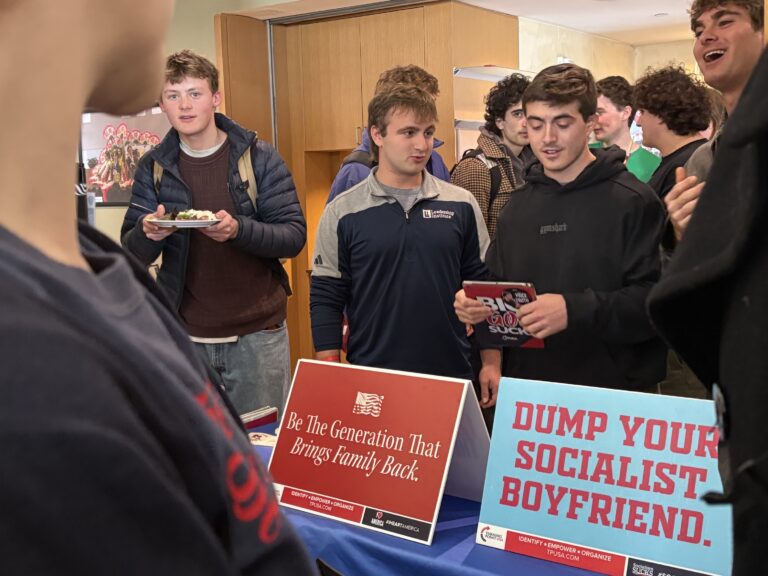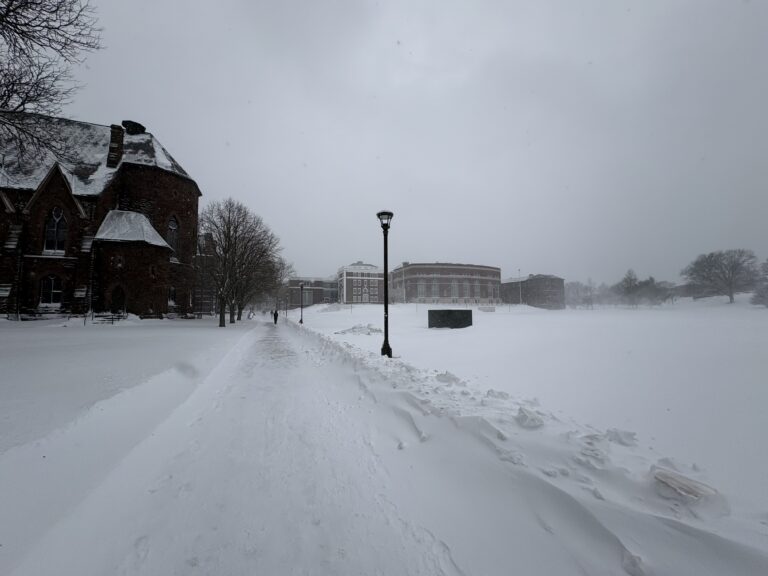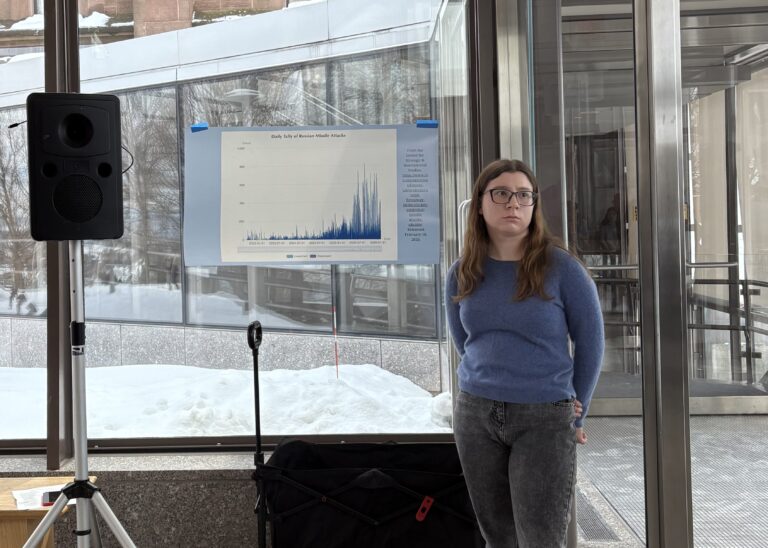COE Receives $800,000 Grant: Think Tank Hire Specialists, Scholars
The College of the Environment (COE) has received an $800,000 grant from the Andrew W. Mellon Foundation, which will be used to support existing and future internship programs as well as funding for teaching fellows. The first installment of the grant was received on July 1.
The grant is the third award from the Andrew W. Mellon Foundation. The foundation has a long history of support for environmental studies at Wesleyan, beginning with its first grant in 2000. In 2006, the University was awarded a second grant dedicated to the embel¬lishment of the environmental studies certificate program and the development of the College of the Environment major. The 2006 grant, which will be completed in December, also enabled the expansion of the COE faculty and helped students to secure research opportunities and internships.
“It’s been tremendous,” said Barry Chernoff, Professor of Earth and Environmental Studies and Director of the College of the Environment, in regard to the 2006 grant. “At the end, we were invited to apply for [the new 2010] grant, for the College of the Environment, which didn’t exist at the end of the previous phase.”
The COE is a unique program built upon several components. The core of the program, according to Chernoff, is the interdisciplinary major. COE also supports student research and community outreach in addition to its distinctive “think tank,” a group of faculty members who collaborate to explore a theme, chosen yearly, in environmental studies. This year’s theme is “vulnerability of social, economic, and natural systems to mul¬tiple sources of external stress.”
Current think tank fellows are Assistant Professor of Earth and Environmental Sciences Dana Royer, Associate Professor of African American Studies Gina Ulysse, and Woodhouse/Sysco Professor of Economics Gary Yohe.
“We’re doing a compelling thing,” said Chernoff, who was instrumental in the establishment of the COE and of the think tank. “It’s something that I believe is unique in the country.”
The University allows current think tank fellows to identify individuals outside of Wesleyan who are prominent in the field of environmental studies. These individuals—specialists, experts, and scholars—will be invited to join the University faculty, and will interact not only with the members of the College of the Environment think tank, but will also be required to teach a course. Though there are currently no visiting think tank fellows, the Andrew W. Mellon Foundation grant will allow the COE to begin the hiring process.
“The Mellon proposal includes monies to pay the salaries of people who come in from outside,” said Chernoff.
Because new fellows will be re¬quired to teach courses, expansion of the think tank will also help to develop the academic component of the College of the Environment.
In addition to think tank fund¬ing, the Mellon grant will also support internship and research opportunities for COE students. Existing internship opportunities allow students to work on campus with a Wesleyan faculty member on environmental research, typically during the summer.
“We’ve had art projects all the way to straight science projects,” Chernoff said of past student initiatives.
The Mellon grant will support these existing internships, but will also provide for a new program.
“This is a large amount of money that will allow us to place a limited num¬ber of students anywhere in the world to do research with a government agency, an NGO, with professors or artists or specialists anywhere,” Chernoff said.
Though these internship op¬portunities are open to all students, Environmental Studies linked major stu-dents will have priority. Over the coming year, the COE will release more informa¬tion, including a request for proposals for the summer of 2011.







Leave a Reply